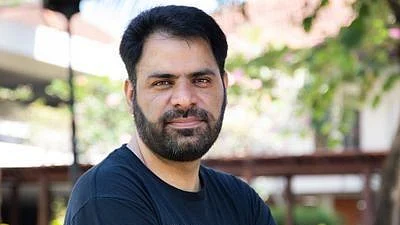(This story was first published on 13 December 2016, after Khurram Parvez was released following 76 days of imprisonment. It is being republished from The Quint's archives in the backdrop of Parvez's arrest by the National Investigation Agency on 22 November 2021.)
The National Investigation Agency (NIA) on Monday, 22 November, arrested human rights activist Khurram Parvez on the charges of terror funding, following raids at his residence and office, ANI reported, quoting the investigation agency.
The NIA reportedly raided his residence in Sonwar and his office in Amira Kadal, Srinagar, in connection with the case, earlier on Monday. The activist had been apprehended from his residence on Monday afternoon for interrogation, and had been arrested by the NIA later in the day.
Parvez has been booked under Sections 17 (raising funds for terrorist act), 18 (conspiracy), 18B (recruiting of any person or persons for terrorist act), 38 (offence relating to membership of a terrorist organisation), and 40 (raising funds for a terrorist organisation) of the Unlawful Activities (Prevention) Act (UAPA).
The activist has also been booked under Indian Penal Code (IPC) sections 120B (criminal conspiracy), 121 (waging, attempting to wage, abetting the waging of war against the government), and 121A (conspiracy to commit offences punishable by Section 121).
Parvez is the programme coordinator of the Jammu and Kashmir Coalition of Civil Society (JKCCS), a human rights federation. He is also the chairperson of the Asian Federation Against Involuntary Disappearances (AFAD).
Parvez was earlier arrested in September 2016, a day after he was barred from travelling to Switzerland to participate in a United Nations Human Rights Council event, and booked under the Public Safety Act (PSA) for allegedly inciting people to protest and raise slogans.
He was released after 76 days in prison.
(At The Quint, we question everything. Play an active role in shaping our journalism by becoming a member today.)
